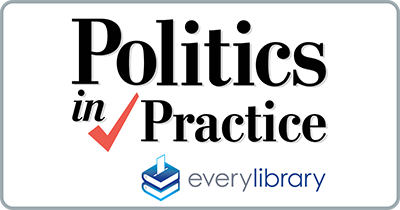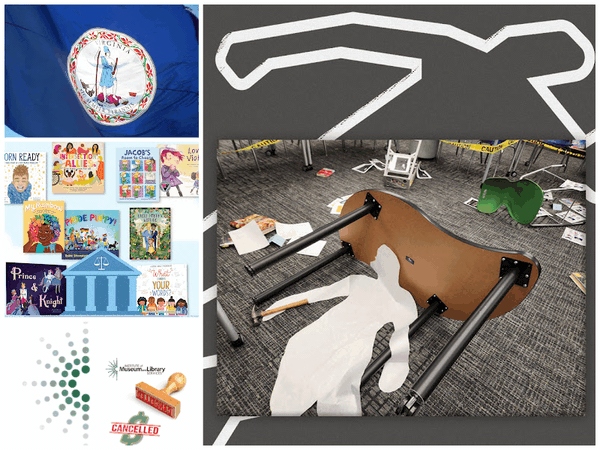Prioritizing State-Level Coordinators for School Library Programs
What would the school library landscape look like if every state Department of Education prioritized a full-time staff role to champion the needs of school librarians and school library programs? According to our colleagues from the SLIDE project, only 13 states have full-time coordinators who support school librarians employed by their state departments of education. This is a problem because our sector needs more focus on professional development for school librarians by State Education Agencies (SEA). Likewise, there needs to be someone on staff at these state Departments of Education to work on capacity-building grant applications or management that can support improving effective school library programs. A dedicated state school library coordinator can significantly elevate the potential of school libraries, ultimately benefiting the broader educational ecosystem. It’s a state-by-state investment that could bring numerous positive changes and benefits. With a dedicated position in place, school librarians would receive tailored and consistent professional development, ensuring they stay up-to-date with the latest trends, technologies, and pedagogical methods. This would enable them to provide students and teachers the best possible resources and support. In addition, having a state-level staff member solely focused on capacity-building grant applications would increase funding opportunities for school library programs. This could lead to improved resources, technologies, and programs for students. A centralized coordinator could also help create a unified vision and strategy for school libraries across the state. This could lead to standardized practices, resource sharing, and collaborative efforts among libraries. Moreover, a full-time position would serve as a voice and advocate for the importance of school libraries at the state level, increasing awareness among policymakers and the public about the pivotal role libraries play in education. Another advantage of having a dedicated position would be systematic data collection on the impact and effectiveness of school library programs. This data could be used to make informed decisions, showcase the value of libraries, and lobby for further support. Additionally, school librarians would have better opportunities to network, share best practices, and collaborate on projects or initiatives. With a dedicated focus on school libraries, there would be more room for innovation, be it in terms of technological integration, program development, or community partnerships. A full-time position could foster partnerships between school libraries and other entities such as local businesses, community organizations, and tech companies, leading to additional resources and support. Certain federal grants and programs can benefit school libraries but require coordination at the state level – or the involvement of a state coordinator – for maximum impact. One such program is the “Innovative Approaches to Literacy (IAL)” program, managed by the U.S. Department of Education. The IAL program has, in the past, provided funds to promote literacy programs in high-need schools, including the development of school libraries. State educational agencies and other entities are eligible to apply, but having a state coordinator focus a state’s grant application on school libraries would be necessary. The Every Student Succeeds Act (ESSA) also authorizes states to use Title funds to support or extend school library programs. Grants within ESSA, including Titles I, II, and IV, can be directed toward supporting these programs. A state coordinator position should be empowered to create collaboration between librarians, administrators, and other stakeholders, which is paramount to harnessing these opportunities. Without a state coordinator, opportunities for federal funding could be missed or not maximized. A state school library coordinator should have the expertise and focus on identifying, applying for, and managing grants specifically geared toward school libraries. Ultimately, students would benefit the most from better-resourced and managed school libraries. Effective school library programs have been linked to higher academic achievement, improved literacy, and better student research skills. Moreover, a state coordinator could identify and provide additional support to underserved or under-resourced areas, ensuring equity in access to quality library services.
Filed under: Advocacy
About John Chrastka
EveryLibrary’s founder is John Chrastka, a long-time library trustee, supporter, and advocate. John is a former partner in AssociaDirect, a Chicago-based consultancy focused on supporting associations in membership recruitment, conference, and governance activities. He is a former president and member of the Board of Trustees for the Berwyn (IL) Public Library (2006 – 2015) and is a former president of the Reaching Across Illinois Libraries System (RAILS) multi-type library system. He is co-author of “Before the Ballot; Building Support for Library Funding.” and “Winning Elections and Influencing Politicians for Library Funding”. Prior to his work at AssociaDirect, he was Director for Membership Development at the American Library Association (ALA) and a co-founder of the Ed Tech startup ClassMap. He was named a 2014 Mover & Shaker by Library Journal and tweets @mrchrastka.
ADVERTISEMENT
ADVERTISEMENT
SLJ Blog Network
One Star Review Guess Who?
A Foolish Interview for a Foolish Biography: Wolverton Hill (a.k.a. Barry Wolverton) Talks Lear
Papercutz to Publish Steampunk Adventure Story | News
Heavy Medal Suggestions: 73 Titles and Counting
DIY Teen Makerspace: Beaded Fish Keychain
ADVERTISEMENT






